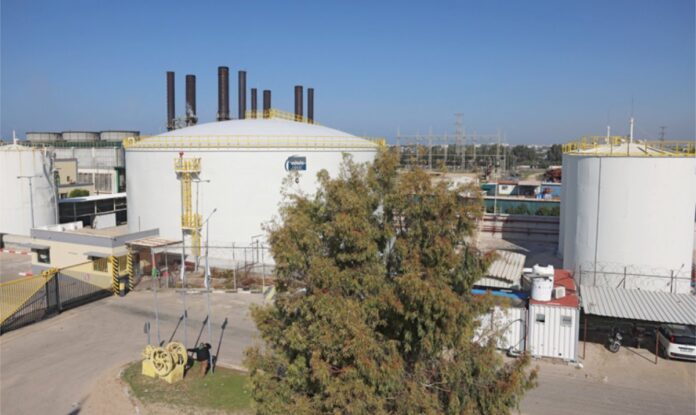RAMALLAH: Palestine is preparing a final agreement with an Egyptian company to explore and extract gas from a field off the shores of the Gaza Strip.
It is expected to provide millions of dollars to the treasury of the Palestinian Authority and improve the ability of the Gaza power plant to generate electric power for residents.
Palestinian Authority Prime Minister Mohammed Shtayyieh said at the start of the weekly government session on Monday in Ramallah that the government would form a team that includes several ministers to follow up on the issue of Palestinian gas.
He said that the chairman of the Palestinian Investment Fund, Mohammed Mustafa, and his team, were negotiating with Egypt to conclude an agreement on gas, in a manner that serves Palestinian national rights and benefits.
A senior Palestinian government official who attended Monday’s Cabinet meeting in Ramallah told Arab News that the Palestinian Authority’s government ministries would facilitate the mission of the Palestinian Investment fund in the issuance of the necessary permissions.
“The gas extraction project is an important strategic scheme for us,” a senior PA government official told Arab News.
“The prime minister and the government are very interested in it because it will generate sums of money that will help the government’s treasury.”
The Palestinian Authority had commissioned energy firm British Gas to conduct gas exploration in the area back in 1999.
A year later, British Gas found Marine 1 about 30 km out to sea, and later the smaller Marine 2, but eventually withdrew from the contract.
The project was handed over to energy giant Shell in 2016 only for it to pull out two years later.
The Palestinian natural gas field Gaza Marine is located in the Palestinian coastal areas.
The field includes an estimated reserve of about 30 billion cubic meters of natural gas.
The cost of developing the Gaza Marine is estimated at $1.2 billion, said Palestinian sources.
The Palestinian Investment Fund and the Consolidated Contractors Company for Oil and Gas are global development partners for the project.
They will cooperate with leading Egyptian natural gas holding company EGAS.
“The talks between the Palestinian coalition companies and the Egyptian company are progressing greatly to reach a final agreement soon,” a senior Palestinian source related to the coalition companies told Arab News.
The Palestinian government has formed a governmental committee to follow up on the progress, said the source.
The source pointed out that there are no negotiations with Israel over this issue. Israel is the occupying power that controls the Gaza Sea, and companies in charge of exploration and extraction of gas need its approval to enter and operate their equipment in Palestinian gas fields.
The Palestinian source confirmed that the decision of the Palestinian government, which was taken in 2018, gives the coalition of Palestinian companies a 55 percent stake and gives the other company working on gas extraction 45 percent.
Palestinian economic expert Samir Hulileh told Arab News that the annual income from the Palestinian gas field — if operated — will be between $700-$800 million annually, equivalent t0 $7-8 billion within 10 years.
Hulileh added that there would be no extension of the gas pipeline to the Israeli city of Ashdod, but rather the lines would be extended to the Egyptian city of Al-Arish. The Egyptian company would then process the gas and sell it, along with Egyptian gas, to Europe.
Part of that gas will be allocated to the power plant in Gaza to increase its production capacity.
Israel recently allowed the Palestinian Authority to explore for gas off the shores of Gaza through Egyptian mediation and US pressure.
Ret. Israeli Maj. Gen. Giora Eiland, the former chief of the Israeli Security Council, said Israel should allow the Palestinians to use the gas field.
The net value of the gas field is $3-$4 billion, forming an excellent national economic asset for the Palestinians.
“Let the Palestinian Authority and Hamas have discussions and decide to share the benefits of the revenues from this gas field,” Eiland said.

